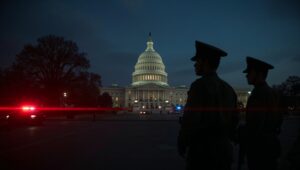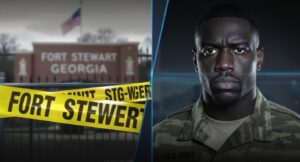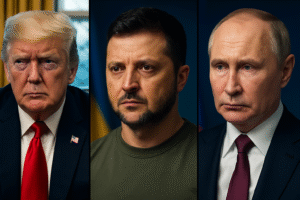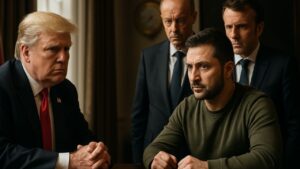Trump Assumes Federal Control of D.C. Police, Deploys National Guard in Unprecedented Move
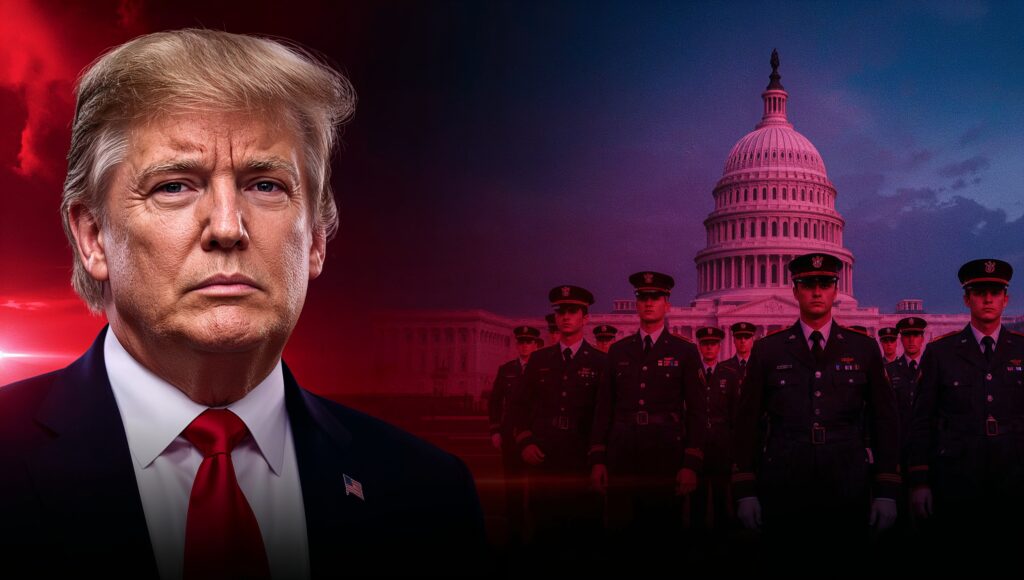
President Trump's federal takeover of D.C. police has drawn both praise from supporters and sharp condemnation from local officials.
WASHINGTON – President Donald Trump announced an unprecedented federal takeover of Washington, D.C.’s public safety operations on Monday, placing the Metropolitan Police Department under direct federal command and deploying 800 National Guard troops to the nation’s capital. The move, which the president justified as a necessary response to rising crime and homelessness, was made without prior notification to local officials, who vehemently dispute the administration’s portrayal of the city’s public safety situation.
The executive action represents a significant escalation in the tense relationship between the federal government and the District of Columbia, leveraging the president’s unique authority over the non-state entity. While President Trump asserts the intervention is essential to restore “law and order,” D.C. Mayor Muriel E. Bowser and other local leaders have labeled it an “unlawful” and “unnecessary” intrusion on local autonomy, citing official data showing that violent crime in the city is at a 30-year low. The action could set a precedent for federal intervention in other major U.S. cities.
At a White House news conference, President Trump stated he would “clean up” homeless encampments and crack down on crime, appointing Drug Enforcement Administration (DEA) head Terry Cole as the interim federal commissioner of the MPD. The president identified a recent assault on a former government staffer, Edward Coristine, as the “last straw” for his decision. “We’re getting rid of the slums,” Trump declared, flanked by top law enforcement and cabinet officials.
Mayor Bowser, who was not informed of the plan prior to the public announcement, held her own press conference, calling the federalization “unsettling and unprecedented” but stating her intention to comply with the order. “A lapse of confidence in our police department by our residents could be a disaster,” Bowser warned, emphasizing the importance of community trust. She, along with D.C. Attorney General Brian Schwalb, pointed to official statistics showing a 26% year-to-date decrease in violent crime compared to 2024, with significant drops in homicides, carjackings, and robberies.
Under the city’s Home Rule Act, the president can assume control of the D.C. police for up to 30 days by declaring an emergency, a power that does not extend to state governments. This follows a controversial move in June when Trump federalized the California National Guard without the governor’s request, a first in over 60 years.
The 800 D.C. National Guard troops are expected to be in position later this week and will primarily provide administrative, logistical, and physical presence support, according to an Army official. They will not be openly carrying rifles on patrol.
The reaction to the takeover has been sharply divided. The D.C. Council issued a joint statement calling the action a “manufactured intrusion on local authority”. Democratic lawmakers, including D.C. Delegate Eleanor Holmes Norton and Maryland Senator Chris Van Hollen, announced plans to reintroduce legislation that would grant the District full control over its own police and National Guard, with Van Hollen accusing Trump of “playing dictator”. In contrast, House Speaker Mike Johnson praised the president for taking “bold and necessary action to crack down on crime”.
Greggory Pemberton, Chairman of the D.C. Police Union, said that “something needs to be done” about crime, citing over 800 vacancies in the police department. However, a recent poll found that 71% of D.C. residents felt President Trump was getting “too involved” in local issues, and 77% were concerned about his threats to take over the D.C. government.
President Trump has explicitly warned that other cities, such as Chicago and New York, “could be next,” suggesting his action in D.C. could serve as a “laboratory for a militarized approach to urban crime-fighting”. While the president cannot directly seize control of state police forces, he could deploy the National Guard. Attorney General Schwalb stated that his office is “considering all of our options” to protect residents’ rights, signaling potential legal challenges ahead.



